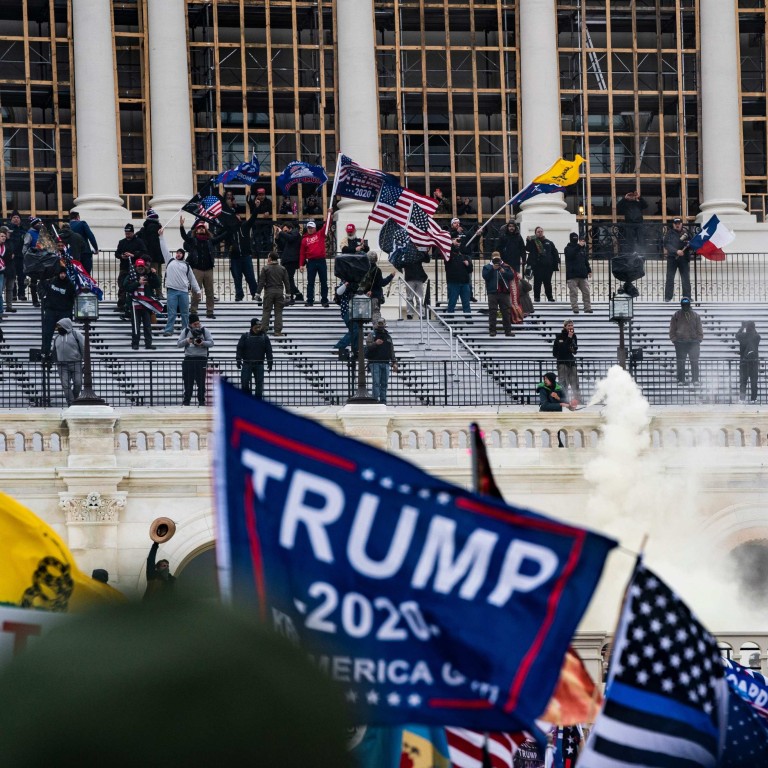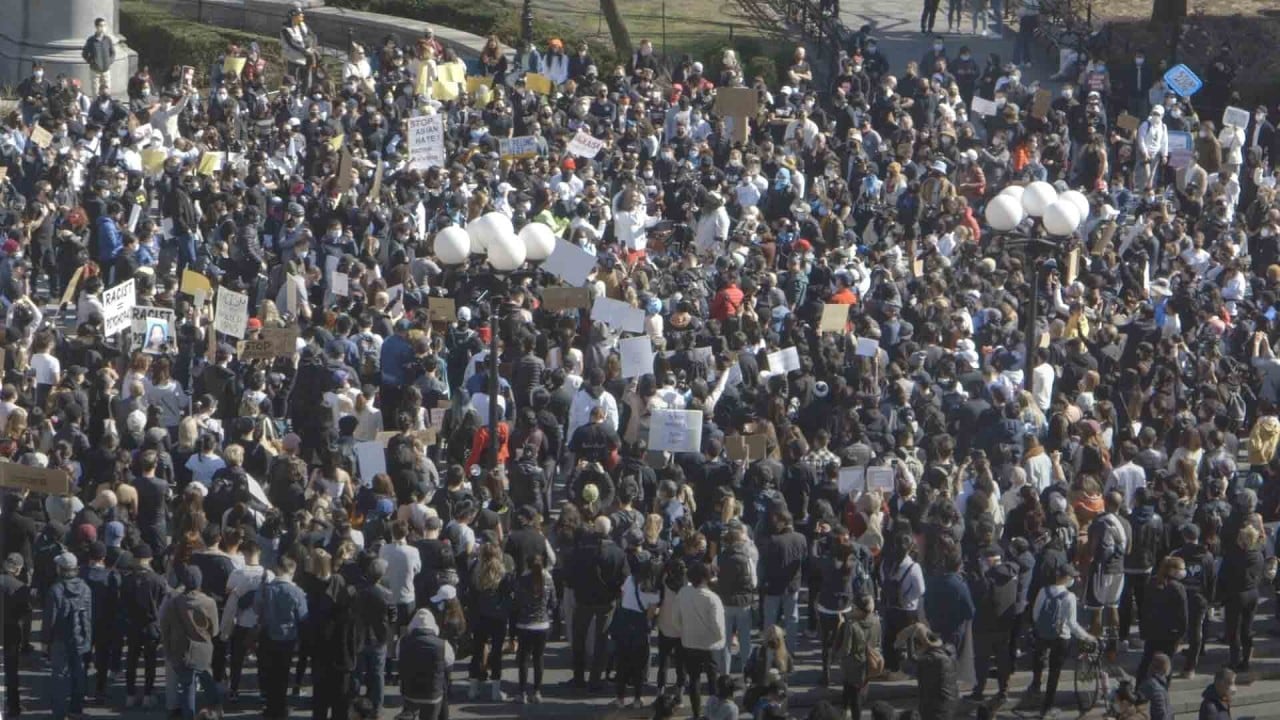
The religion behind a divided America and its conflict with China
- The crises the US faces at home and abroad are the outgrowth of a peculiar American world view shaped by Christianity’s monotheistic belief system
- Until Americans are willing to move past the myth of ‘American exceptionalism’, the US is unlikely to be able to coexist peaceably with the outside world
US Secretary of Homeland Security Alejandro Mayorkas reported last month that domestic terrorism was now the top threat to American national security. This real and present home-grown danger is an accretion of a toxic body polity mired in mistrust.
Trust between Washington and Beijing has hit an all-time low and the risk of open conflict is a real and present danger.
The crises the US faces at home and abroad have a common thread. They are the outgrowth of a peculiar American world view shaped by Christianity’s monotheistic belief system.
Just as most Christians believe there is no salvation outside the church, most Americans regard liberal democracy as the only pathway to a free and just international order. This has propelled the US into a global push to liberate and democratise the world.
These Christian beliefs underpin Americans’ view of themselves and the world. It is this monotheism-inspired world order with which China has run into conflict.
The Communist Party’s rebuff of liberal democracy is seen as an affront to what Americans regard as their divinely ordained global leadership.
The US is determined not to let China challenge or dilute its peculiarly unreserved self-belief.
But the Christian right is also vexed by an enemy lurking within, namely the liberal left and its seeming irreverence for and assault on the American way of life. The feeling of hostility is reciprocated.
The secular left is as agitated by the religious right’s purported contempt for American core values such as inclusivity, diversity and care for the marginalised.
America’s founding fathers envisioned a new world anchored on the Enlightenment principles of liberty, equality and fraternity. Of course, as slave owners, some of these framers of the constitution lived a life of contradiction.
Still, the ideals enshrined at the birth of the republic did pave the way for a more open and freer America, transforming it into a land of opportunity for many.
The recent spike in anti-Asian violence underscores the convoluted dynamics threatening America’s race relations.
In his testimony to the US Senate, Mayorkas warned that white supremacist militias represented the most persistent and lethal threat to the country. Republican lawmakers quickly responded with claims that some of the recent unrest was linked to far-left extremists.
The US is trapped in a religion-induced crisis at home and abroad. The republic has slipped into an era of absolutist, monotheistic morality with little room for nonconformity and ambiguity.
Unless Americans can find a way out of Christianity’s binary, puritanical world view, the country’s diverse constituents are unlikely to be able to sustain the enlightened common space needed for coexistence.
Until Americans are willing to move past the myth of “American exceptionalism”, the US is unlikely to be able coexist peaceably with the outside world, and with China specifically.
Peter T.C. Chang is deputy director of the Institute of China Studies, University of Malaya, Kuala Lumpur, Malaysia



